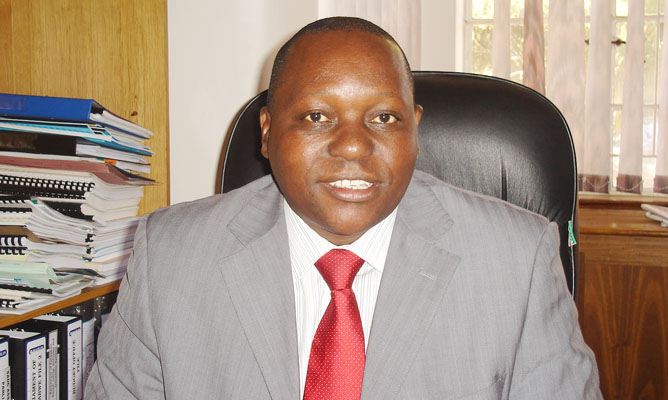
In a significant development and a plus for good law-making, government last week accepted the Parliamentary Legal Committee (PLC) recommendations to amend unconstitutional provisions in the Criminal Procedure and Evidence Amendment Bill relating to the issuance of private prosecution certificates and those that empowered the Prosecutor-General’s Office to override decisions of the courts in granting bail to an accused person.
Vice-President and Justice, Legal and Parliamentary Affairs minister Emmerson Mnangagwa made the concessions after listening to robust debate that followed the issuance of the PLC adverse report. The concessions by Mnangagwa were also influenced by the Justice, Legal and Parliamentary Affairs Portfolio Committee which conducted hearings on the Bill and tabled a well-reasoned report in the House.
The essence of the changes pertaining to the granting of bail is that while the Prosecutor-General or public prosecutor may note an appeal against the admission to or refusal to grant bail, the decision to admit to bail remains in force unless, on the application of the Prosecutor-General or public prosecutor, the judge or magistrate is satisfied that there is a reasonable possibility that the interests of justice may be defeated by the release of the accused on bail before the decision on appeal. If the judge or magistrate so decides, s/he may suspend his or her decision to admit the person to bail and order the continued detention of the person.

This is a significant departure from the previous dispensation whereby the noting of an appeal by the Prosecutor-General would immediately suspend bail, with the accused remaining in custody for seven days. The first amendment to the Criminal Procedure and Evidence Amendment Bill had sought to reduce the period of incarceration to 72 hours, which the PLC still found to be unconstitutional in light of the principle of separation of powers.
The Justice minister also amended clause 6 of the Bill to do with the issuance of private prosecution certificate by the Prosecutor-General’s Office. In essence, the Prosecutor-General is now obliged to issue a certificate if the private party produces a sworn statement indicating that it is the victim or an interested person who has suffered as a direct consequence of the alleged offence; has the means to conduct the private prosecution promptly and timeously; and will prosecute personally or through a lawyer or in the form of a class action.
The PLC had argued that section 16 (2) sets conditions that are to be met in order for the Prosecutor-General to grant a certificate for private prosecution. However, section 16 (3) then gave the Prosecutor-General discretional powers to refuse to grant the certificate. The reasons pronounced in Section 16 (3) were the same reasons and considerations that the Prosecutor-General would have given when refusing to prosecute. This was found to be unsustainable as the true spirit and purpose of allowing private prosecutions was to give private persons the chance to litigate at their own expense where the Prosecutor General has decided not to do so.
To make matters worse, there was a provision in the Bill that criminalised failure to disclose — when applying for a certificate to allow for private prosecution —any additional evidence that was not availed to the Prosecutor-General at the time when the Prosecutor-General declined to prosecute the case. The PLC opined that this would intimidate and discourage people from requesting certificates to allow for private prosecution for fear of criminal reprisal. The committee must therefore be commended for a well-reasoned opinion.
The PLC is an important committee of Parliament created by section 152 of the Constitution. Comprised of members qualified to practise in Zimbabwe as legal practitioners, the PLC must fulfil the following mandate:
- Chamisa under fire over US$120K donation
- Mavhunga puts DeMbare into Chibuku quarterfinals
- Pension funds bet on Cabora Bassa oilfields
- Councils defy govt fire tender directive
Keep Reading
l Examine every Bill, other than a Constitutional Bill, before it receives its final vote in the Senate of National Assembly;
l Examine any Bill which has been amended after being examined by the Committee before the Bill receives its final vote in the Senate or National Assembly;
l Every statutory instrument published in the Gazette;
l Every draft Bill which has been referred to the Committee by a Vice-President or a minister; and
l Every draft statutory instrument which has been referred to the committee by the authority empowered to make the instrument.
The PLC must report to Parliament or to the Vice-President, minister or authority, as the case may be, whether it considers any provision in the Bill or statutory instrument in violation of the Constitution or the enabling Act of Parliament.
Given the importance of the work undertaken by the PLC, the committee is given 26 business days to consider and report to the House its opinion on every Bill, other than a Constitutional Bill. It is also given 26 business days to report on a statutory instrument. Six business days are given for a Bill that would have been amended after being examined by the committee.
It would therefore be completely absurd for the House and ministers to ignore the opinions of the PLC given the central role it plays in the law making process in Parliament. Furthermore, all the members of the current PLC are legally qualified to practice in Zimbabwe. Again, it would be strange to completely ignore an opinion from the learned profession.
We hope the positive changes to the Criminal Procedure and Evidence Amendment Bill is the beginning of more progressive enactments as the government aligns laws with the Constitution. The opinions of the PLC must be respected and not politicised. Parliament must enact laws that are constitutional if it is to fulfil its mandate of protecting the Constitution and promoting democratic governance.
l John Makamure is the executive director of the Southern African Parliamentary Support Trust. Feedback: [email protected]











